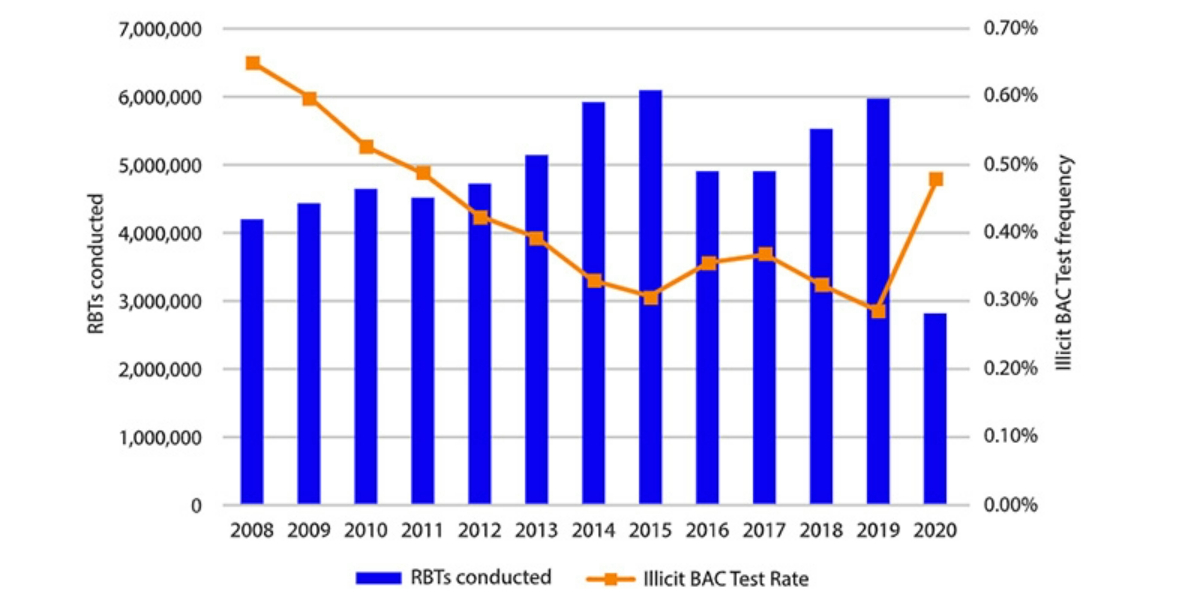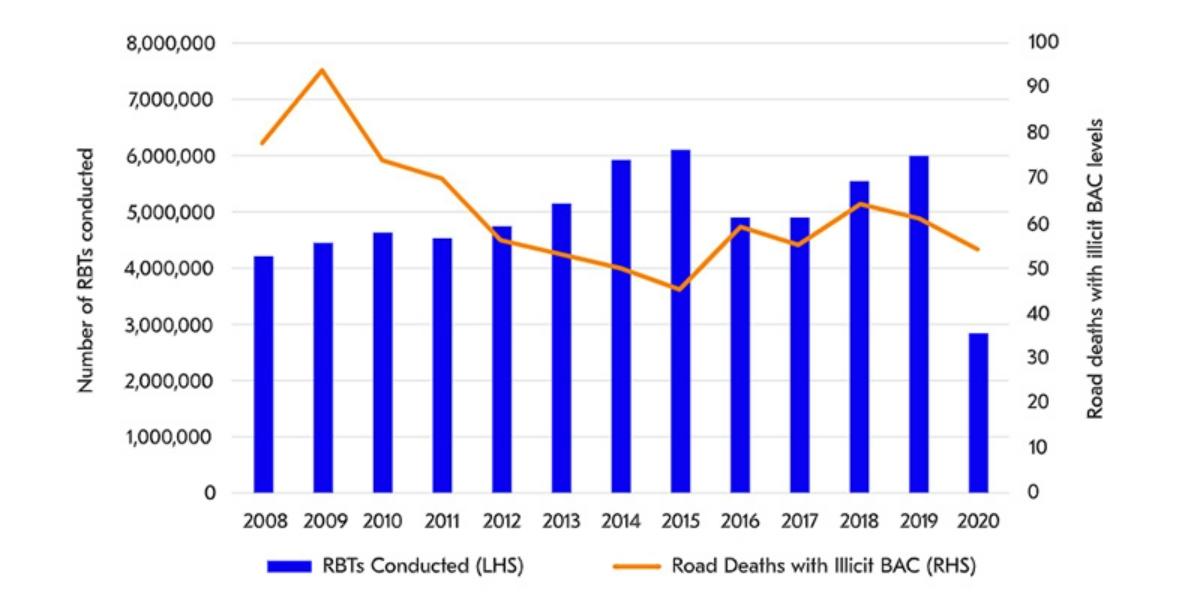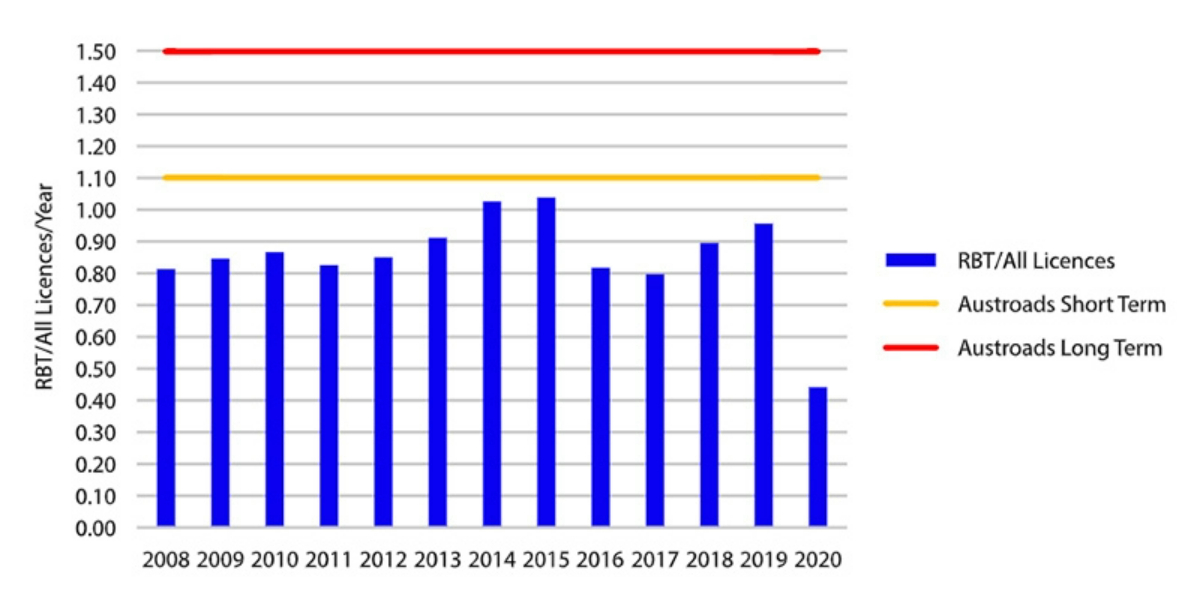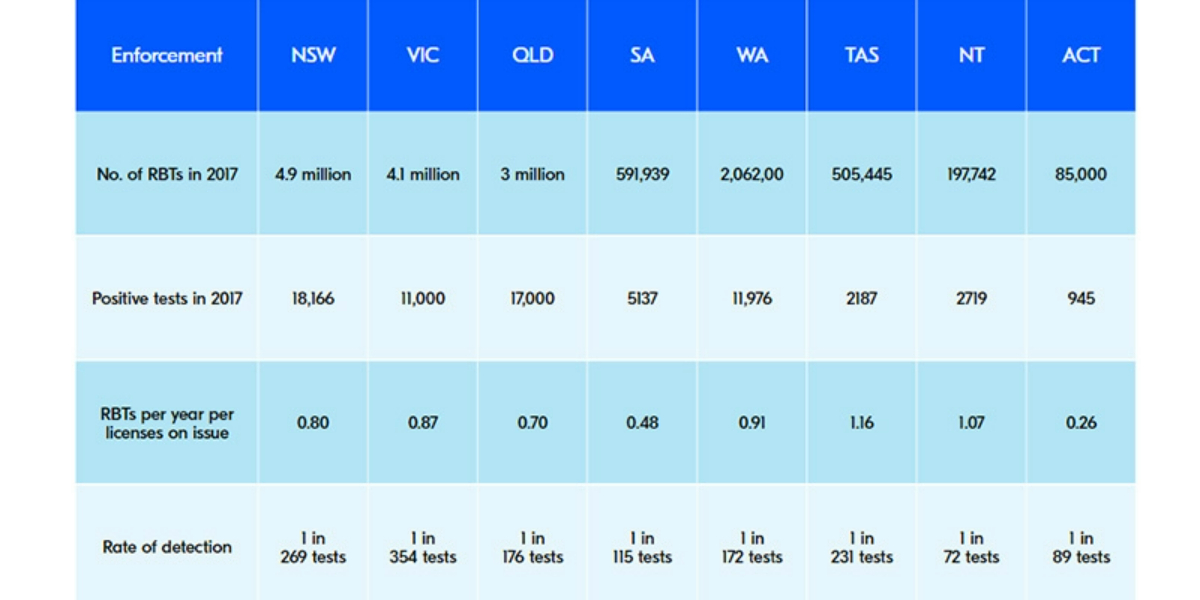Let's separate drinking from driving

Boost the Bus: RBT Every Driver is the seventh report in the NRMA’s Road Safety Series and highlights that of the almost three million random breath tests conducted in 2020, close to 0.5 per cent of drivers returned a positive result.
This is a significant increase from the 0.3 per cent positive rate in 2019 and the highest rate of positive returns since 2011.
Read more: NRMA's Bust the boozers report and petition to boost RBTs.
The facts
In 2020:
- 54 people lost their lives in alcohol-related crashes
- 303 people were seriously injured in alcohol related crashes
- 2,831,035 random breath tests were done, down 53 per cent from 2019
- 72 per cent of alcohol related fatalities were on country roads
What's the issue?
The NRMA has played a lead role in addressing the dangers of drink driving over the last 40 years. The organisation lobbied successfully for the introduction of random breath testing in Australia and launched the nation’s first ever education campaigns against the dangers of drink driving.
In 2020, 54 people lost their lives in alcohol related crashes on NSW roads and 303 were injured. Almost three-quarters (72%) of alcohol-related fatalities were on country roads. Worryingly, fatal crashes involving alcohol increased to 19 per cent in 2020, from 16 per cent in 2016.


The NRMA has played a lead role in addressing the dangers of drink driving over the last 40 years. We lobbied successfully for the introduction of random breath testing in Australia and launched the nation’s first ever education campaigns against the dangers of drink driving.
The Boost the Bus: RBT Every Driver report showed a decade-high spike in the percentage of drivers caught over the limit by random breath testing and stated that with adequate resourcing and appropriate funding the testing rate in NSW could be increased to at least 1.5 tests per licence on issue.
What the NRMA wants
1. A short-term plan to increase RBTs conducted to at least 1.1 per licenced driver per year by the end of the 2022–2023 financial year.
2. Adequate planning and resourcing to ensure a long-term goal of at least 1.5 RBTs per year per licence on issue is achievable.
3. Appropriate funding and resourcing allocated to NSW Police in order to achieve at least 1.1 random breath tests per year across NSW.
4. Increased RBT of drivers must be supported by an education campaign to raise the awareness of the high risk of detection and associated penalties.


Fund more police and resourcing
RBTs are labour-intensive, yet highly effective in deterring and detecting drink driving. The NRMA welcomed the $41.5 million in this year’s NSW Budget for an additional 250 police officers in 2021-2022, as part of the NSW Government’s $583 million commitment to recruit 1500 police over four years. It is now critical that we see more of them dedicated to reducing the road toll.
Police resourcing should also be adequately distributed across the state, with particular attention to regional NSW given that 72 per cent of alcohol-related fatalities occurred on country roads.
Separate drinking from driving
The role education campaigns play in raising awareness of the dangers of drink driving and encouraging good behaviour is vital in reducing road trauma. While this has helped make drink driving largely unacceptable in our community, the risk in some areas is still prevalent and sadly growing.
The NRMA believes such educational campaigns should focus on:
- High levels of enforcement and penalties;
- Promoting the benefits of separating drinking and driving, and;
- The dangers of driving over the limit the next day.


